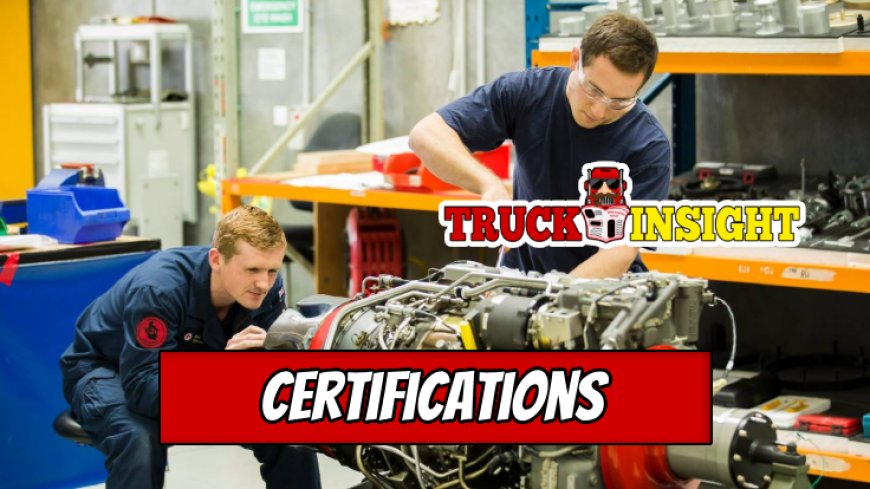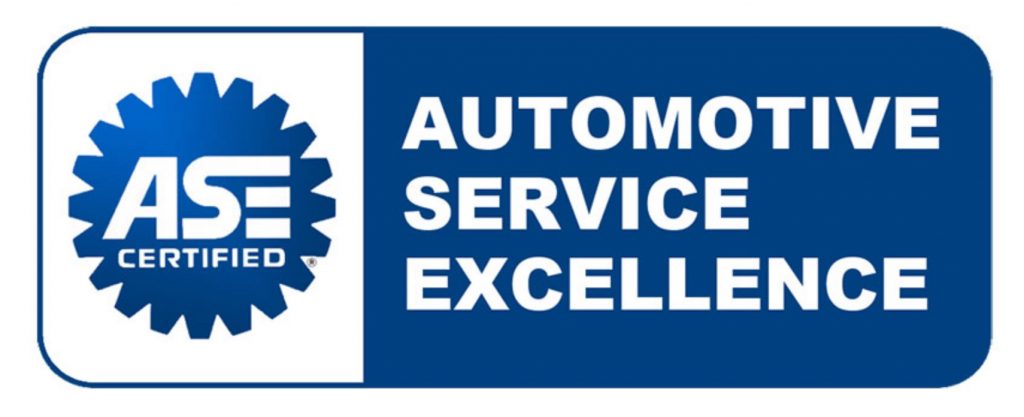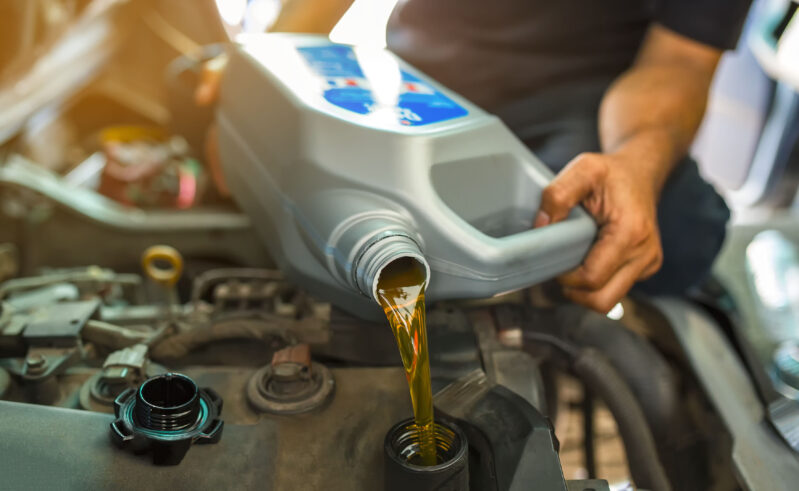Certifications You Need as a Diesel Truck Mechanic
Boost your career prospects in diesel truck mechanics with these must-have certifications.

Seeking to excel as a diesel truck mechanic? Earning the right diesel mechanic certifications can make an impactful difference. Modern trucking businesses mandate and highly value these credentials. Not only do they validate your skill set, they also serve as a pathway for professional advancement in the industry.
The Key to Success: Diesel Mechanic Certifications
As diesel technology evolves, good foundational knowledge is essential, but it's the specialized certification that sets you apart. Snap up the mechanical opportunities that lie ahead with these certifications.
Table of Contents
- Automotive Service Excellence (ASE) Certification
- Manufacturer Specific Certification
- Commercial Driver's License (CDL) Certification
- Environmental Protection Agency (EPA) Certification
- State-Specific Diesel Mechanic Certifications
- National Coalition of Certification Centers (NC3) Certification
- The Importance of Continuing Education
- The Benefits of Diesel Mechanic Certifications
Automotive Service Excellence (ASE) Certification

Well-regarded within the automotive industry, the Automotive Service Excellence (ASE) Certification is often the first step for aspiring diesel mechanics. The certificate validates your competency in truck equipment, demonstrating that you possess essential knowledge and practical skills.
The ASE offers several certifications for mechanics, but the most relevant for diesel mechanics include the T-Series, the E-Series, and Advanced Level series. Let's have a deeper look:
- The T-Series: These tests assess knowledge in medium-heavy truck equipment. There are eight tests in total, covering gas engines, diesel engines, drivetrain, brakes, suspension, steering, electrical systems, and HVAC. Mechanics who pass all eight get the designation of 'Master Medium-Heavy Truck Technician'.
- The E-Series: This collection is warmly referred to as the 'Truck Equipment Series'. It proves your expertise in specific aspects of truck equipment installation and repair.
- Advanced Level series: This is for aspiring professionals seeking to reach the pinnacle of the profession. It includes complex engine performance and repair topics.
Manufacturer Specific Certification
Another way to enhance one's marketability as a diesel mechanic is through manufacturer-specific certifications. These certifications, offered by truck manufacturers themselves, are a grand statement of expertise in the specific models and engines manufactured by these companies.
Some popular manufacturers that offer such certifications include Peterbilt, Ford, Cummins, and Detroit Diesel. Each company has its unique certification process and requirements. So, it pays off to research this aspect thoroughly.
Commercial Driver's License (CDL) Certification

While not strictly a mechanic certification, a Commercial Driver's License (CDL) is a substantial addition to a diesel mechanic's arsenal of qualifications. Driving the trucks you're servicing has many benefits. It provides a complete perspective, enhancing the understanding of the machine's dynamics, and aids in troubleshooting.
The Federal Motor Carrier Safety Administration (FMCSA) outlines the requirements for obtaining a CDL. It includes passing written knowledge tests and a three-part skills test, which comprises a pre-trip vehicle inspection, controlling the vehicle, and a hands-on driving test.
Why CDL Certification?
The CDL Certification is more than just a feather in your cap. It makes you more versatile and valuable in the eyes of potential employers. This certification can also open the doors to exciting prospects such as becoming a mobile diesel mechanic, enabling you to reach clients when they're stuck on-road.
Environmental Protection Agency (EPA) Certification
In our eco-conscious society, environmental compliance has become crucial. The EPA certification indicates that a diesel mechanic understands the environmental impact of diesel technology and can operate within EPA guidelines.
As emission regulations tighten, proficiency in eco-friendly practices will only become more valuable. Being accredited by the EPA sets you apart as a mechanic and shows that you're prepared for the future of diesel technology.
State-Specific Diesel Mechanic Certifications
Despite federal guidelines governing the practice of diesel mechanics, modern States have enacted regulations and certifications of their own. Therefore, diesel mechanics often need to acquire state-specific certifications to meet local requirements and ensure employability.
These certifications might involve safety inspections, emissions testing, or other specializations that a state deems necessary. As an aspiring diesel mechanic, you need to be aware of these varying requirements. Remember, failure to adhere to these state mandates may limit your employability and growth opportunities.
National Coalition of Certification Centers (NC3) Certification
Is there a certificate that validates your competency in the latest tools and equipment? Yes, that's the NC3 Certifications. The certifications offered by the National Coalition of Certification Centers (NC3) focus on the tools and technologies used in the industry.
In addition to its generic certifications, NC3 also offers certifications from industry giants including Snap-On and Trane. These specialized credentials exhibit your exposure to cutting-edge equipment and dexterity in employing them as a mechanic.
Hands-On Learning
The best part about NC3 Certifications is the hands-on learning approach. It not just supplements your theoretical knowledge, but also offers direct, practical experience on the tools and technologies you'll be dealing with day in, day out.
The Importance of Continuing Education
Besides acquiring all these certifications, a diesel mechanic's education never genuinely ends. With industry trends and technologies constantly evolving, you must adopt a mindset of continuous learning. As a diesel mechanic, you'll see different models, new equipment, and advancing technologies coming to the fold every year.
Therefore, along with current qualifications, engaging in continuing education keeps you abreast with industry updates. It ensures your skills and credentials remain relevant and enhances the potential for career advancement.
The Benefits of Diesel Mechanic Certifications

Is earning these diverse certifications worth it? Absolutely. Here's why:
- Distinct competitive edge: Having specific certifications under your belt sets you apart from the pack. It portrays you as a qualified professional with a solid skill set.
- Increased employability: Certifications signal potential employers that you're committed, skilled, and ready to take on the job, increasing the chances of employment.
- Better pay: As per the US Bureau of Labor Statistics, diesel mechanics with certifications tend to earn around 15% more than their non-certified counterparts.
- Professional growth: The right certifications not only boost the resume but also pave the way for specialized roles and growth within the industry.
In a fast-paced, innovative field like diesel truck mechanics, nothing stands still for long. To keep up, professionals must continually evolve and adapt by acquiring relevant certifications, mastering new technologies, and honing their skills. It's not just necessary for job readiness - it's crucial to ensuring a long, successful career in an ever-changing industry.
What's Your Reaction?





























































